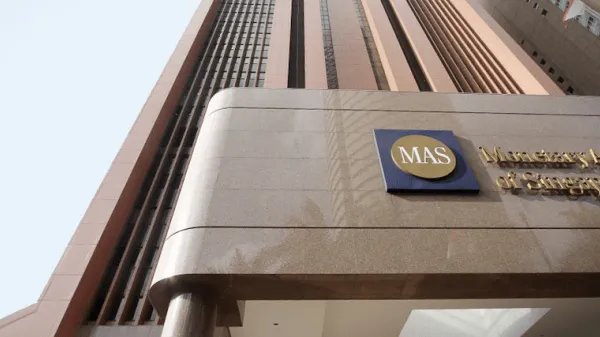
New COVID outbreak, inflation, rising interest rates pose risks to Singapore’s financial stability: MAS
Banks should have enough buffers and find climate transition risks manageable.
Whilst banks, corporates, and households in Singapore remained resilient in 2021 and indicators of vulnerability have generally improved, potential shocks may amplify financial stability risks, the local regulator said in its annual financial stability review.
Renewed COVID-19 outbreaks—a possibility given the recently-discovered Omicron variant—could impede global economic recovery, according to the Monetary Authority of Singapore (MAS).
It added that a sustained trend of higher inflation could also trigger more aggressive monetary policy normalisation, forcing a sharp repricing in financial assets and capital outflows from emerging market economies.
Uncertainty from rising interest rates in the coming years as well as policy risks also remain, the regulator further warned.
“Policy missteps in the timing, pace, and sequence of withdrawal of support measures could exacerbate both growth and inflation risks,” MAS wrote in its annual review released on 6 December.
Overall, the regulator said that indicators of vulnerability for the corporate, household, and financial sectors have generally improved through the COVID-19 pandemic.
It added that its stress tests found that corporations, households, and financial institutions would be well-placed to withstand further adverse shocks.
Banks to remain resilient
In the financial sector, banks were called to maintain prudent levels of provisions and strong liquidity profiles, although MAS has noted that domestic systemically-important banks (D-SIBs) have maintained healthy liquidity buffers.
MAS stress tests reportedly found that banks will be resilient to further downside risks, thanks to their strong capital positions.
“Banks entered the COVID-19 pandemic from a position of strength, [and] banks’ capital positions have remained strong throughout the COVID-19 pandemic,” the regulator said.
Lenders should also find climate risks manageable.
Using data on hand from 610 banks, MAS estimated the financial system’s exposure to transition risk by Battiston’s concept of Climate Policy Relevant Sectors (CPRS). The regulator found that loan exposures to CPRS (excluding residential mortgages) have remained stable at 29–31% of the total loan portfolio over 2015-2020.
“The loan exposures were mainly to CPRS with lower emissions, suggesting less susceptibility to potential impairments from changes in climate policy,” MAS noted in the press briefing.
“Banks’ overall credit growth has been healthy, largely driven by non-bank lending, and resident non-bank lending registered robust growth, although the latter led to the slight rise in resident leverage risk,” it added.
Household risks elevated but manageable
Meanwhile, household financial vulnerabilities were noted to be relatively unchanged from the past year, but are still slightly higher than before the pandemic, according to data from MAS. This reflects the increase in leverage risk over the same period.
“The higher leverage is underpinned by an increase in housing loans in tandem with a resilient private residential property market, over the past year,” the regulator added.
On the other hand, credit card borrowings moderated with the pullback in discretionary spending, leading to improvement in the credit quality of short-term debt.
The net wealth of households also continued to rise over the past year on the back of higher values of financial and property assets, with the household debt servicing burden is expected to remain manageable
“Adequate financial buffers as liquid assets such as cash and deposits exceed total liabilities,” MAS said, adding that the stress test shows mortgage servicing ratios remain manageable under shocks to income and interest rates.
Uneven growth in corporates
Whilst the same stress test suggests that most SGX-listed corporates would be resilient to interest rate and earnings shocks, MAS posits that growth across sectors will remain uneven.
“SGX-listed firms maintained healthy cash buffers and improved their maturity profiles. Maturity risk eased as firms raised more cash organically in H2 2020 and H1 2021, and borrowed less from short-term debt markets,” MAS wrote.
Foreign currency risk reportedly also remained stable.



















 Advertise
Advertise












